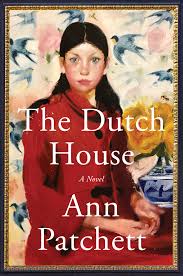Chapter 2
byChapter 2 explores the shifting dynamics within the Conroy household, centering on the growing influence of Andrea and the lingering absence of the siblings’ mother. Andrea’s presence, initially occasional and seemingly inconsequential, gradually becomes more permanent, with her interest in the Dutch House taking precedence over her relationships with its inhabitants. Maeve and the narrator, though initially indifferent to Andrea’s presence, begin to sense an unsettling shift in their family’s structure, particularly as their father appears increasingly accepting of her growing role in their lives. This subtle but undeniable transformation marks the beginning of tensions that will later define their familial struggles.
Maeve’s relationship with their father is examined further in this chapter, revealing his pragmatic, almost transactional, approach to life and business. As a man dedicated to his real estate empire, he instills in his children a strong understanding of financial responsibility and property management, believing these lessons to be of greater value than displays of affection. However, while Maeve learns to navigate the business world with intelligence and precision, she silently longs for a deeper, more emotional bond with her father—one that remains elusive despite their shared appreciation for structure and discipline. Meanwhile, the narrator watches these interactions unfold, slowly recognizing the divide between them, a distance that only widens with time.
The narrative also sheds light on the absence of their mother, whose departure for India remains an open wound for the family, particularly for Maeve. Her leaving is not only a physical loss but an emotional rupture that reshapes the household’s dynamics, forcing Maeve into a maternal role long before she is ready. This emotional burden, coupled with the strain of trying to fill the void their mother left behind, takes a toll on her well-being. She eventually falls gravely ill, a condition that some perceive as a purely physical ailment while others recognize it as a manifestation of deeper emotional distress. For the narrator, witnessing Maeve’s illness cements his understanding of her role in his life—not just as an older sister but as a parental figure, protector, and constant source of stability in an otherwise chaotic world.
Andrea’s growing presence is not just felt in her interactions with the family but in the way she imposes herself upon the Dutch House, a place she seems to revere more than any of its inhabitants. She moves through the grand rooms with an air of possessiveness, as though the house itself is what she truly desires, rather than any meaningful connection with her new family. The house, once a symbol of warmth and familiarity for Maeve and the narrator, begins to feel more like a contested space, foreshadowing the struggles that will later emerge over ownership and belonging. This growing tension between Andrea and the siblings remains unspoken but ever-present, an undercurrent of unease that neither Maeve nor the narrator can fully articulate just yet.
As the chapter unfolds, it becomes clear that the Dutch House is more than just a residence—it is a symbol of shifting allegiances, power struggles, and unresolved emotions. Andrea’s attachment to the house hints at her future ambitions, while Maeve and the narrator’s connection to it remains deeply tied to their memories of family and a sense of home that is rapidly slipping away. The tension between those who wish to claim the house and those who cherish it for what it represents lays the groundwork for the conflicts that will define the siblings’ futures.
The chapter is a meditation on presence and absence, on the way people and places hold power over our lives long after they are gone. Through its exploration of control, loss, and the fight to preserve what little remains of a fractured family, it presents a poignant reflection on how our past shapes our present. As Maeve and the narrator navigate their changing world, the Dutch House stands as both a sanctuary and a battleground, a place where the echoes of the past refuse to fade, shaping the destinies of those who inhabit it.


